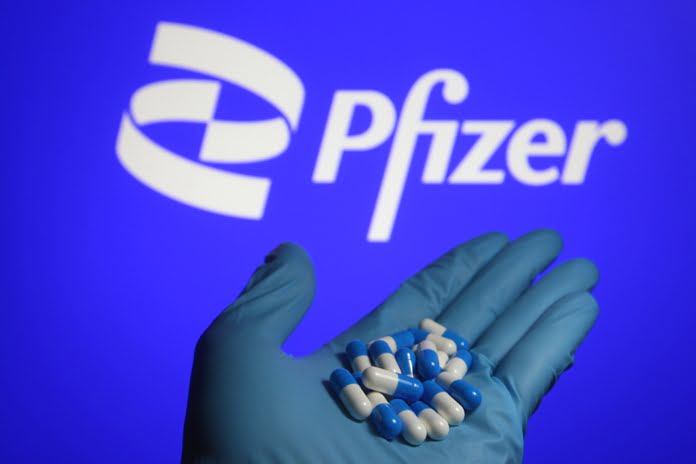Pfizer (NYSE:PFE) has announced a significant milestone as the U.S. Food and Drug Administration (FDA) granted approval for the supplemental new drug applications (sNDAs) to expand the labeling of Braftovi (encorafenib) + Mektovi (binimetinib) for use in adult patients with BRAF V600E-mutant metastatic non-small cell lung cancer (NSCLC).
This significant achievement is based on robust data from the ongoing phase II PHAROS study, which was designed to assess the combination of Braftovi and Mektovi in patients with BRAF V600E-mutant metastatic NSCLC. The PHAROS study met its primary endpoint by demonstrating an impressive objective response rate.
With this label expansion, the Braftovi/Mektovi combination secures approval for two crucial indications in the United States. It is already authorized for the treatment of adult patients with BRAF V600E or V600K mutated metastatic melanoma. Furthermore, Braftovi, in combination with cetuximab, has been approved for treating adult patients with BRAF V600E-mutated metastatic colorectal cancer.
Notably, NSCLC accounts for a substantial proportion, nearly 80-85%, of all lung cancer cases. Within this broad spectrum, a BRAF V600E mutation is found in approximately 2% of cases. Personalized therapies like Braftovi + Mektovi play a vital role in addressing such specific and genetically altered NSCLC indications.
Pfizer’s oncology portfolio was significantly bolstered with the acquisition of Array Biopharma in 2019, and the addition of Braftovi and Mektovi has enabled the company to address critical unmet needs in the field of oncology.
It’s essential to mention that Pfizer has a robust pipeline of new products and indications set to launch in 2023. The company is well on its way to achieving its goal of introducing 19 new products or indications in 18 months, all non-COVID-related. These launches are expected to generate approximately $20 billion in sales by 2030, and the majority of these products are believed to have blockbuster potential.
Pfizer’s RSV vaccine, Abrysvo, was approved in the United States in 2023, providing protection for older adults and infants (through maternal immunization). In August, the FDA granted approval for Elrexfio, a BCMA-CD3-targeted bispecific antibody designed to treat relapsed/refractory multiple myeloma. In June, Litfulo, the company’s JAK3 inhibitor for severe alopecia areata, and Ngenla, a long-acting once-weekly pediatric growth hormone deficiency treatment, received FDA approval. In March, the agency approved Zavzpret, Pfizer’s migraine nasal spray, for use in adults.
These approvals are expected to bolster Pfizer’s revenue growth, which has faced challenges due to declining demand for COVID-19-related products. In 2023, Pfizer is focused on a robust portfolio of innovative treatments and indications across various therapeutic areas.
Despite the challenges in the pharmaceutical industry, Pfizer’s commitment to developing breakthrough therapies continues to drive its growth and impact patients’ lives positively.
Featured Image: Megapixl









